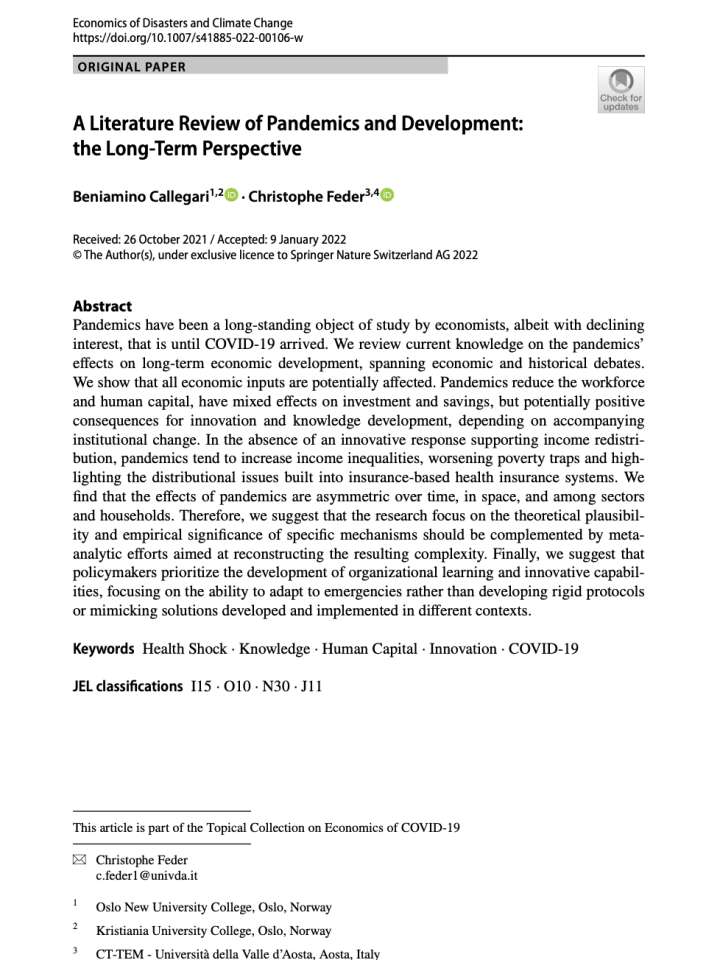A literature review of pandemics and development: The long-term perspective
This paper reviews current knowledge on the pandemics’ effects on long-term economic development, spanning economic and historical debates. Pandemics have been a long-standing object of study by economists, albeit with declining interest, that is until COVID-19 arrived. This paper shows that all economic inputs are potentially affected. Pandemics reduce the workforce and human capital, have mixed effects on investment and savings, but potentially positive consequences for innovation and knowledge development, depending on accompanying institutional change. In the absence of an innovative response supporting income redistribution, pandemics tend to increase income inequalities, worsening poverty traps and highlighting the distributional issues built into insurance-based health insurance systems.
The study finds that the effects of pandemics are asymmetric over time, in space, and among sectors and households. Therefore, the paper suggests that the research focus on the theoretical plausibility and empirical significance of specific mechanisms should be complemented by meta-analytic efforts aimed at reconstructing the resulting complexity. Finally, the study suggests that policymakers prioritize the development of organizational learning and innovative capabilities, focusing on the ability to adapt to emergencies rather than developing rigid protocols or mimicking solutions developed and implemented in different contexts.
Explore further
